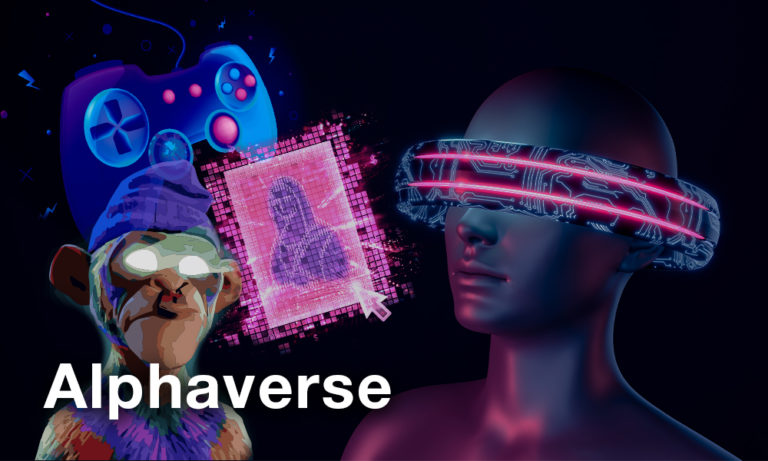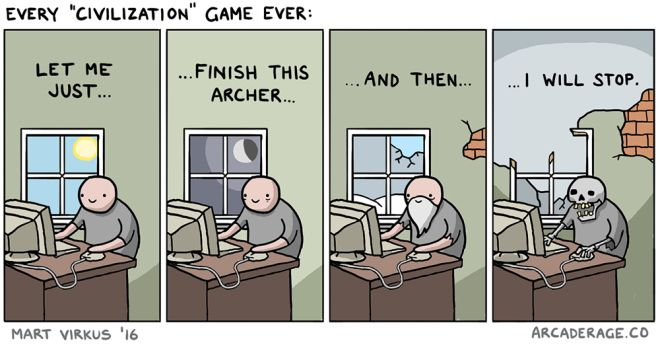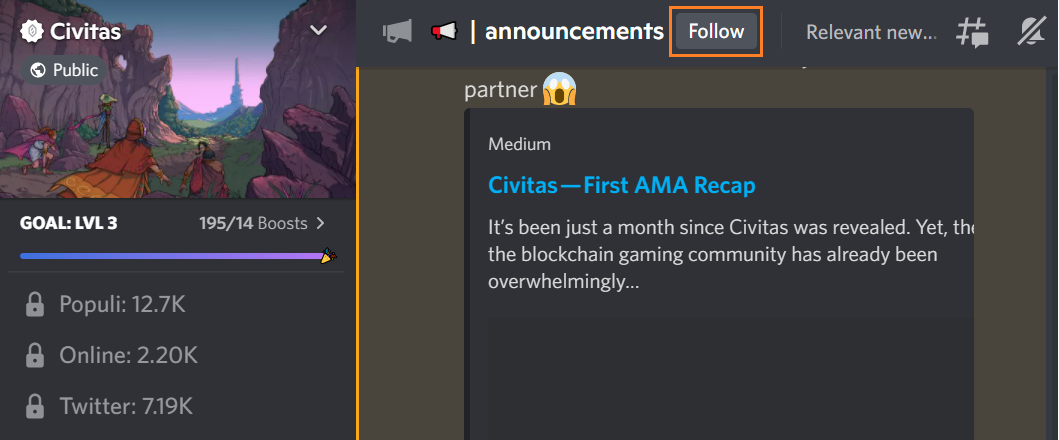Web3 Meets Big Players.

Crypto venture capitalists are pouring a lot of money into blockchain games. In Q1 2021, VCs invested $2.5 billion in crypto gaming projects. However, most of these projects continue to miss an important link, which is partnerships with traditional gaming companies that already have large user bases.
Only a handful of non-blockchain entertainment companies like Animoca Brands, Ubisoft, and Square Enix have expressed interest in the crypto space. Moreover, traditional companies don’t rush to associate themselves with crypto and NFTs because of pushback against these technologies.
The game I will introduce today, Civitas, breaks the ice between traditional companies and the web 3 world by partnering with a gaming industry giant, CCP Games, the developer of Eve Online, a massive multiplayer online game that attracted over 9 million players.
The team has significant potential to build a successful game. On top of that, the game will implement novel decentralized finance mechanisms to bootstrap a sizable community and treasury. And you can benefit from all this by acquiring Civitas NFT early and getting initial incentives.
Civitas is a community-driven strategy game that draws inspiration from popular titles like Civilization and Eve Online. In 1991, Civilization was the first 4X (Explore, Expand, Exploit and Exterminate) strategy game with various gameplay options.
The game was so addictive that many players experienced “just one more turn” syndrome and were hooked on the game for hours. Civitas aims to build a new city-building game with a similar concept to the 4X strategy genre.
Players in Civitas will scout various in-game areas, gather resources, and participate in developing cities that will collaborate and compete with other cities in the game. There is no end goal, which should make the game perpetually addictive.
The game will have multiple decentralized autonomous organizations (DAOs) to run the Civitas universe. In Civitas, each city will constitute a subDAO with a governance module and a treasury. In this respect, it is encouraging to see that the team has partnered with leading DeFi teams and developers like Delphi Digital, Stani Kulechov, and Kain Warwick, who will help them design the DAO economies.
Players can own virtual land in the game as NFTs. A land NFT owner will get access to a city subDAO and participate in its governance. Lands will enable yields in the form of in-game tokens $CITI, which makes them a perfect passive income play.
$CITI will serve as the governance token for the DAOs and the in-game reward currency. Players will be able to obtain $CITI tokens by completing quests, contributing towards subDAOs, and playing augmented reality mini-games on the game’s mobile version.
The team will conduct the first NFT sale for its project with land NFTs in Q2, 2022. The land sale will be followed by the $CITI token launch, the details of which are yet to be announced. After the launch of tokens, the demand for lands will likely increase as they are required to stake $CITI tokens for rewards. As a holder, you will likely be able to sell your land at a profit after the $CITI token launch.
If you believe in the project’s long-term success, you can acquire tokens in the initial sale and then stake them onto your lands. If the game becomes fairly popular, early land owners and stakers will likely receive outsized rewards in tokens and other in-game assets.
The risk of investing in Civitas this early is that it’s an ambitious project with novel ideas. There is a chance that the final game may not live up to its expectations. Also, keep in mind that the full launch is expected to happen somewhere in 2023, and we can’t possibly predict the broader market conditions that far into the future.
Follow the project’s Discord server and Twitter account for information on land NFT sales. You can turn on the notifications for Civitas’ Twitter account by clicking on the ‘bell’ icon to receive notifications instantly.
Alternatively, you can also ‘Follow’ the #announcement channel of Civitas’ Discord to receive the updates. Note that you will need a personal server for this. If you don’t know how to set one up, don’t worry, it’s easy. Just follow the instructions here.
Did you like the content of this Email? Follow us on Twitter.
And for even more alpha, follow me: Nivesh, and my colleagues: Anton, Sergey, and Anthony.



